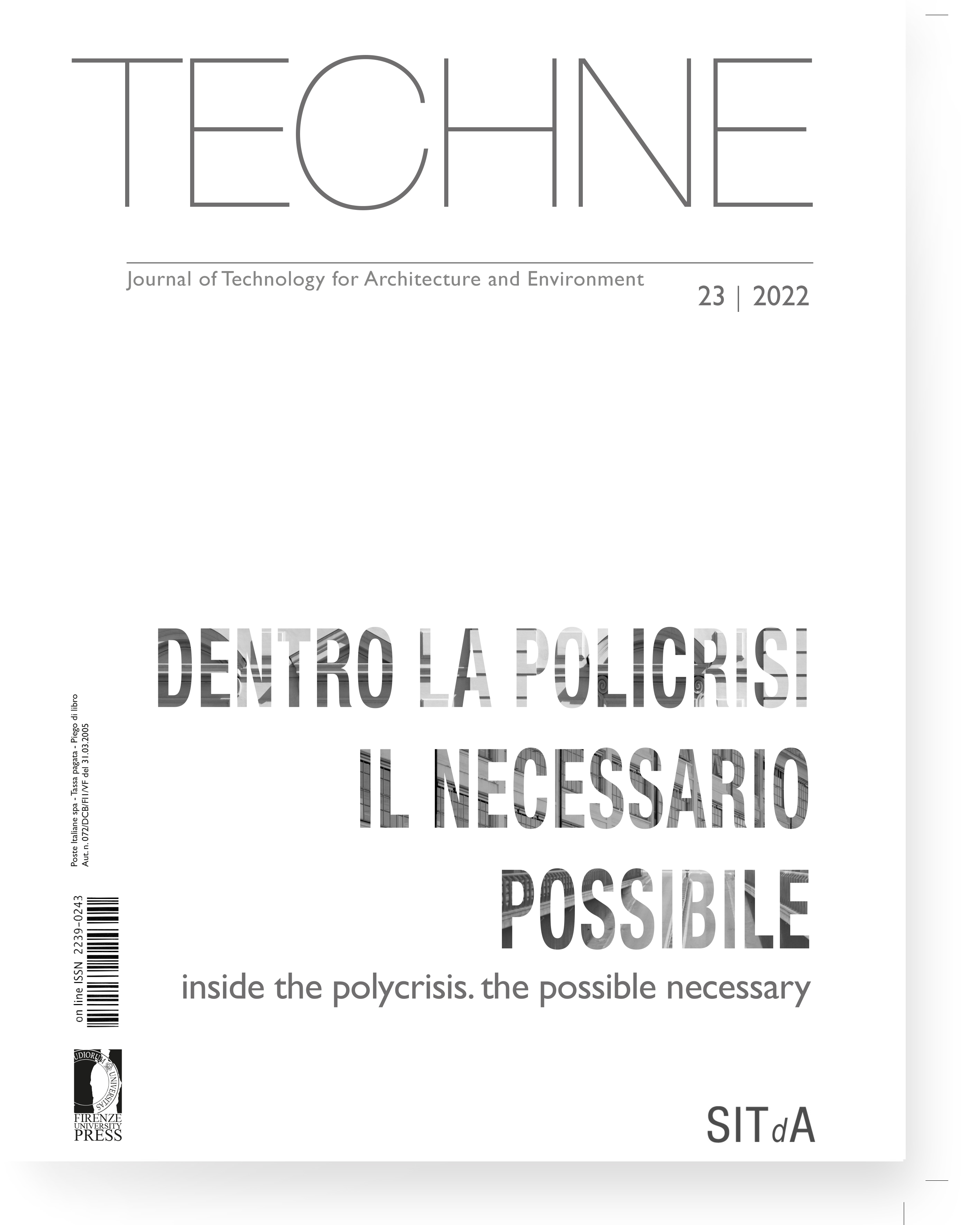Published 2022-03-16
Keywords
- Community-led Local Development,
- Community Regeneration Indicators,
- Co-design transition model,
- Human-centred approach
How to Cite
Abstract
This paper, prepared in the context of Community-led Local Development, discusses the relationships between the adaptive capacity of cities and the latest participatory governance approaches to identify new tools for eco-social transition. The polycrisis is an opportunity to reflect upon strategies to mitigate environmental, social and economic waste. The adoption of a systemic, circular and reiterative methodology considers stakeholders as promoters and drivers of human-centred development processes. From the intercontinental empirical comparison of case studies, the experimentation proposes Community Regeneration Indicators to monitor and evaluate the processes of recovery and adaptation of the built heritage, generating a replicable eco-social co-design transition model.






